

Here at Untapped Cities, we have had the good fortune of documenting the construction of the Second Avenue Subway annually since 2011. To celebrate the opening of the new subway line, here is a slideshow of our favorite photographs over the last six years.
In 2011, Untapped Cities writer Jake Schabas, an urban planner, descended below the 96th Street station with the MTA Capital Construction team at the northern terminus of the first phase of the Second Avenue Subway. Incredibly, the line has been planned since 1929 but was stalled by events of global proportion, starting with the Great Depression and later, World War II. Construction on the line actually began in 1972 at 103rd Street but ended in 1975 due to the city’s fiscal crisis.
When the below photograph was taken in 2011, the tunneling had just been completed by a tunnel boring machine, a 200-ton piece of construction mega infrastructure. For a period of time, the MTA was operating seven of these machines in their capital projects, each which had a nickname. The Second Avenue Subway machine was named Adi, after the granddaughter of Dr. Michael Horodniceanu, the MTA’s President of Capital Construction. It finished its role in New York City at 63rd Street, the southern terminus of the first phase of the Second Avenue Subway line, a little over a month before our descent down into the tunnels and according to the New York Times, was “refurbished and shipped to Indianapolis for another project.”
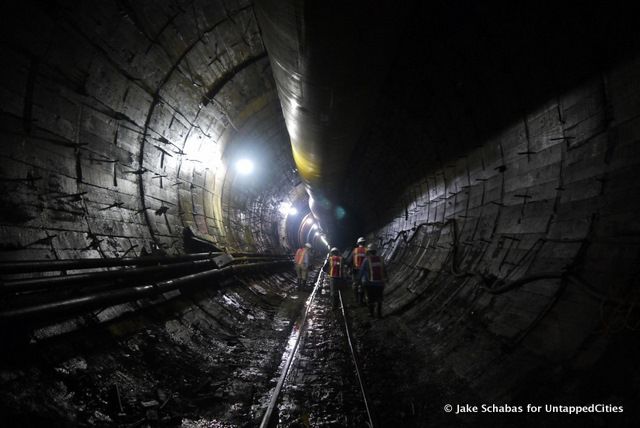
The tunnels are lined in concrete, as you can see in the photograph above, but on our October 2011 visit, some of city’s bedrock, Manhattan schist, was still visible in parts “at times braced by massive iron ribs,” wrote Schabas. You can see this state in the photograph below as the concrete process proceeds. Natural light floods down from the street below.
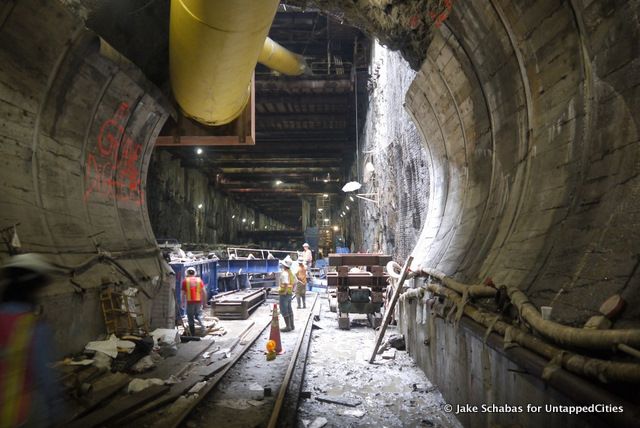
In 2012, we went down below 63rd Street with the American Planning Association, whose partnership with MTA Capital Projects offered tours of the Second Avenue Subway project to residents and students as part of a community outreach program. What was most observable during this visit was the structure of the underground world, with its own set of boundaries and politics. There were the strict demarcations between contracting firms below ground, and a thin line between construction and the existing subway system.
On the platform, a blue wall is what separated construction from an active platform for the F train:
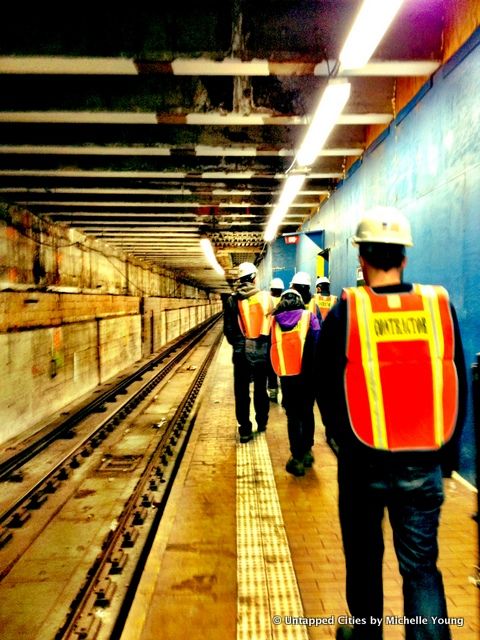
Our group, emerging onto the functioning F train platform at 63rd Street/Lexington Avenue in 2012
In 2013, Untapped Cities writer and photogrpaher Bhushan Mondkar took a tour under 86th Street with MTA President of Capital Construction, Dr. Michael Horodniceanu descending through the construction elevator workers had nicknamed “The Thunderdome.” A good deal of blasting via explosives was going on, and again, the visit revealed millions of years of untouched schist.
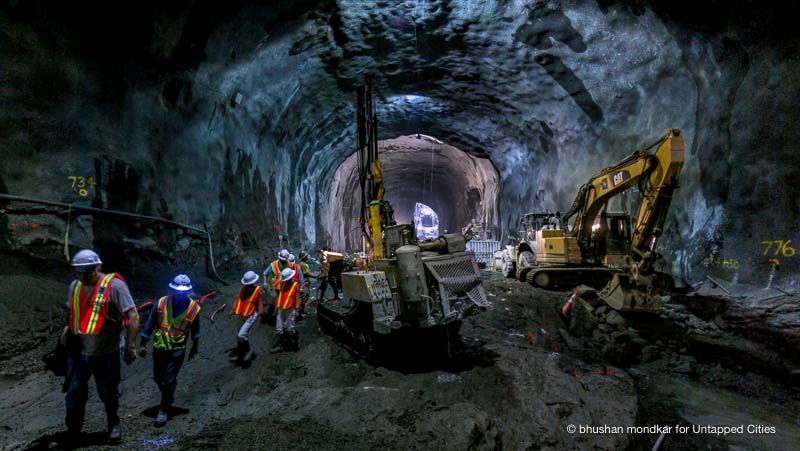
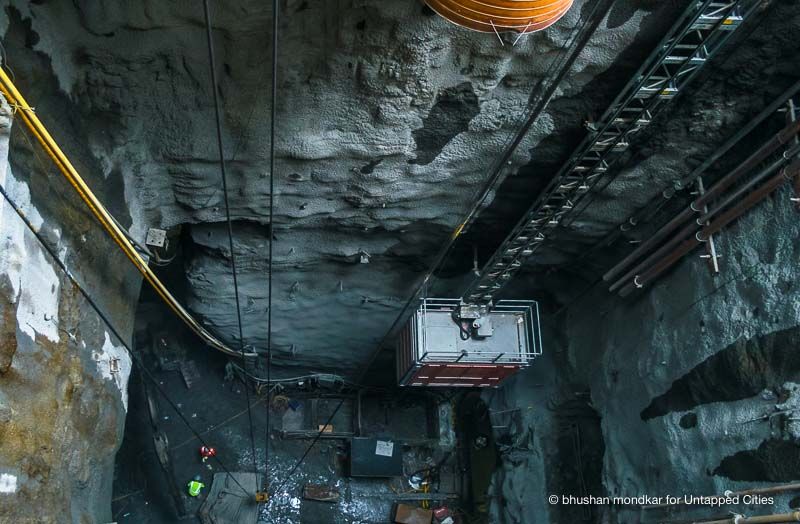
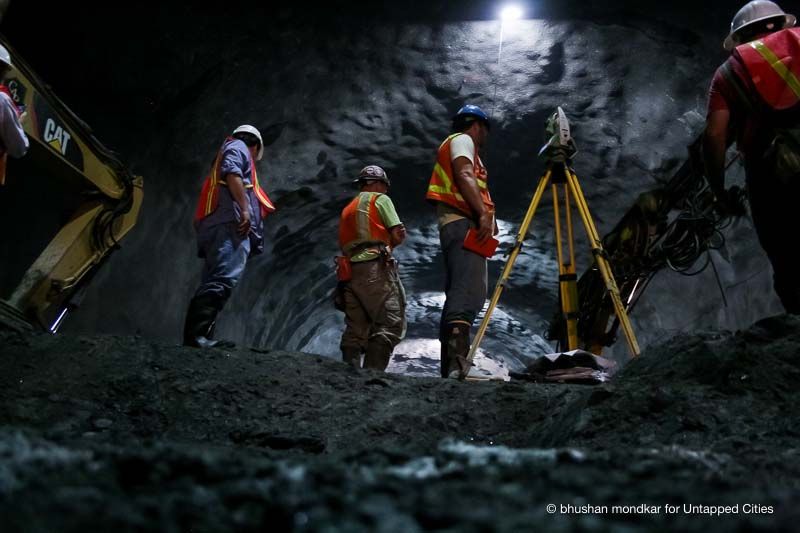
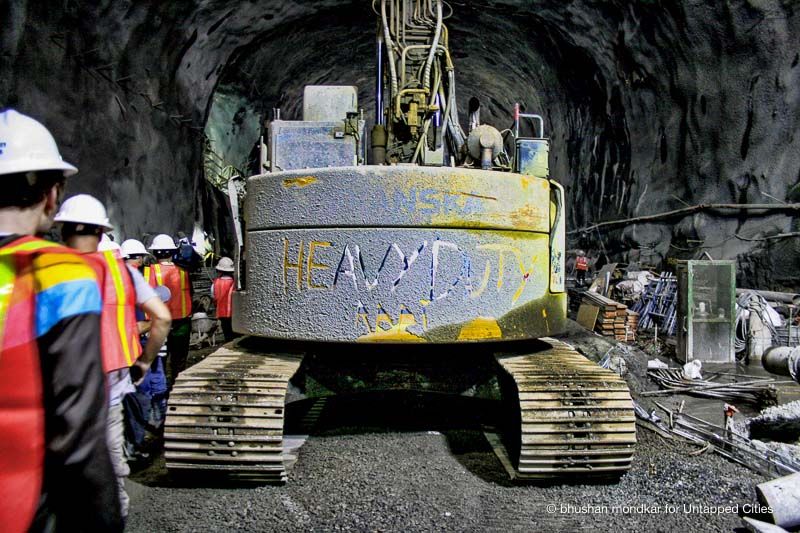
At this time, the southbound tunnel was completed but the northbound tunnel was still raw. Mondkar was walked through the completed tunnel.
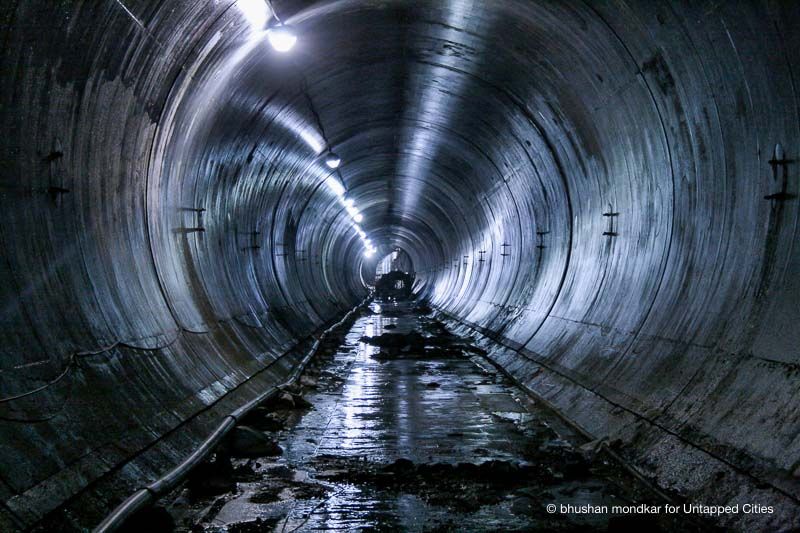
10 months later in 2014, Mondkar went back down walking the 14 blocks of tunnels between 72nd Street and 86th Street. He wrote at the time:
“The Second Avenue Subway revealed itself in its own charming, sometimes mysterious ways; reflecting dramatic views in puddles of water scattered throughout the expanse.We weaved through large monumental spaces and arterial tunnels, lit up in chiaroscuro lighting, creating pockets of surprise. In the distance, an ethereal beam of light from the bustling world above illuminated the cavern and our hopes that this century-old project in-the-making is finally seeing the light of day.”
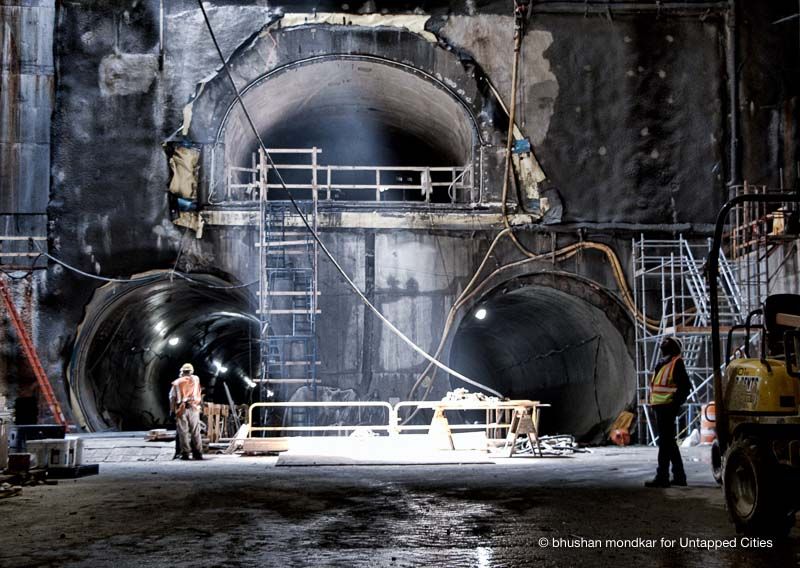
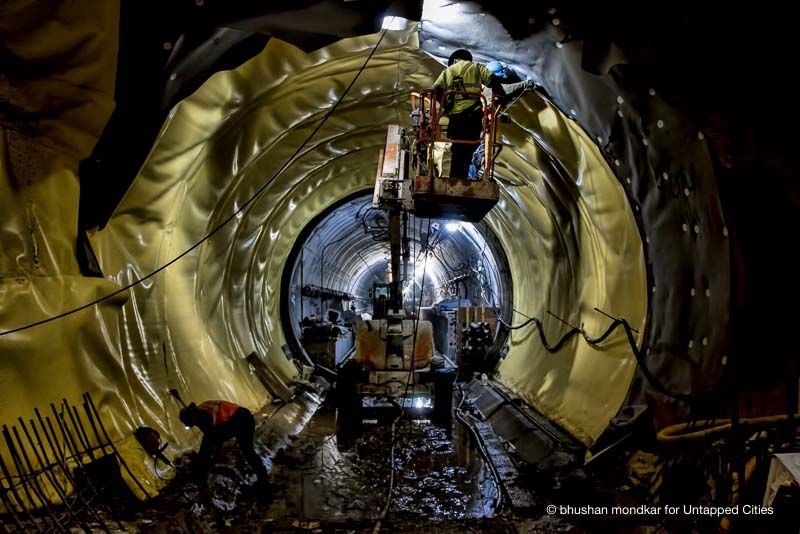
Here, workers are waterproofing the tunnel walls
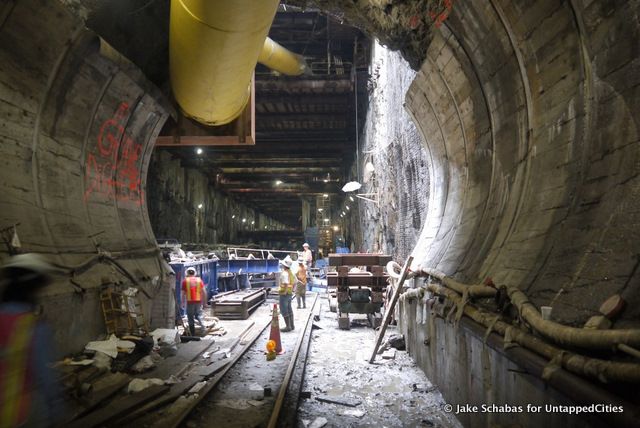
Here is the colossal cavern that is now the 86th Street station
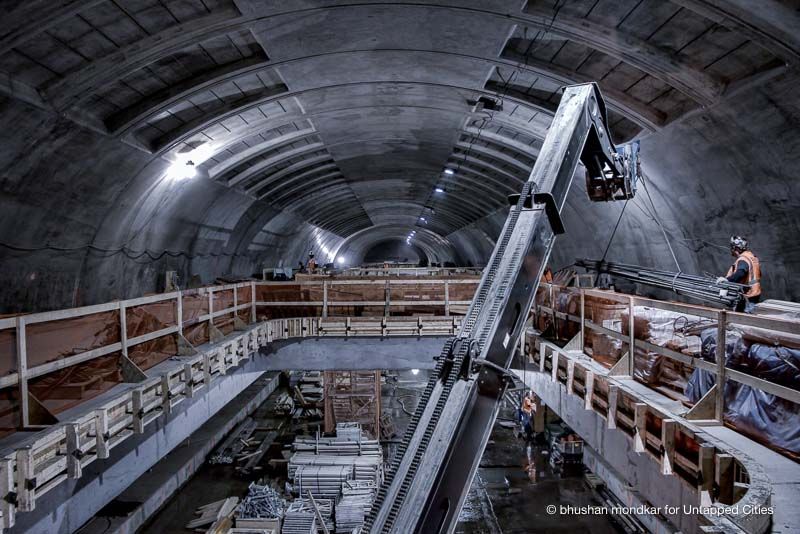
This is the raw structure of the 72nd Street station from the mezzanine level, with below photograph taken in the completed station at the same spot
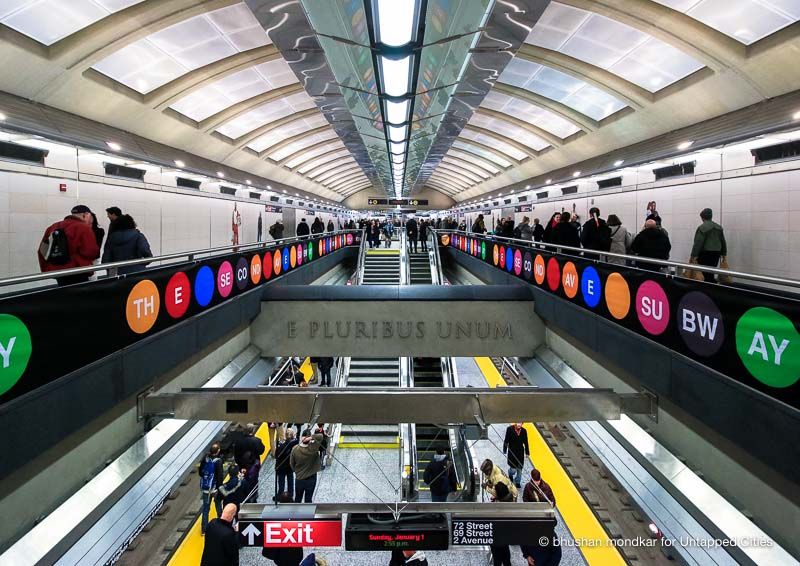
In 2015, Mondkar went back down with Dr. Horodniceanu and walked 23 blocks from 63rd street to 86th Street at 115 feet below Second Avenue. At this stage, the subway line was said to be 82% complete.

Subway tiles were already going in, tracks were laid, and some of the escalators were in place. A communication room was largely installed and a ramp that will eventually carry the “T” line was already set. Also visible were the massive ventilation shafts floating above the 72nd street station that control air temperature, which are supposed to keep the stations 10 degrees cooler in summer.
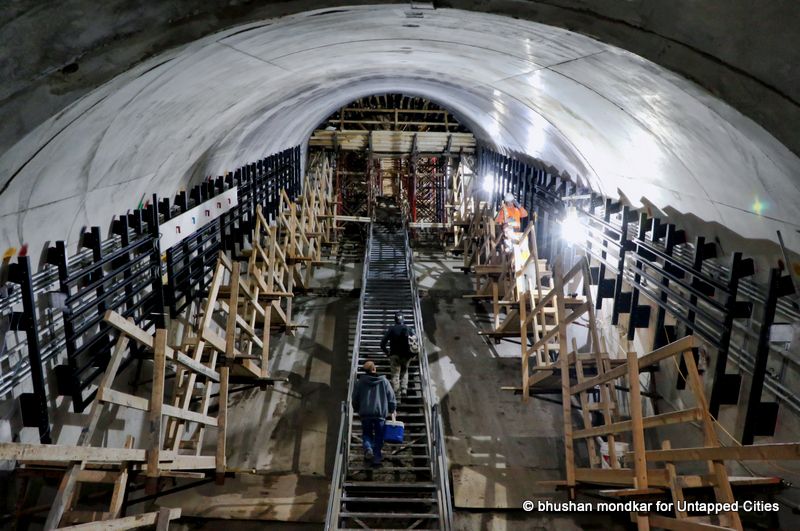
The massive tunnel slopes from the street level to the mezzanine level now house three escalators
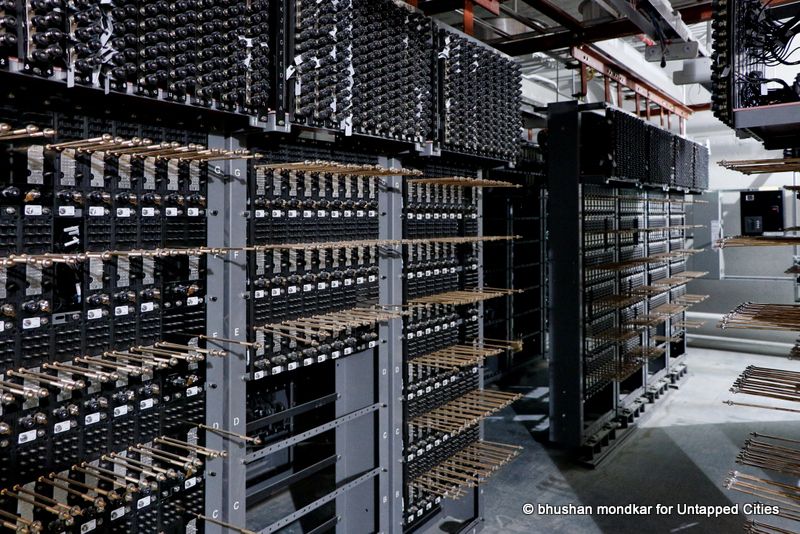
Communication room with the CBTC system
Also in 2015, one of our sources shared two sound clips revealing that a new announcer would be heard on the Second Avenue Subway. And in 2016, we attended a preview presentation that revealed all the new artwork inside the line.
See more of our most recent construction photographs of the Second Avenue Subway line here.


